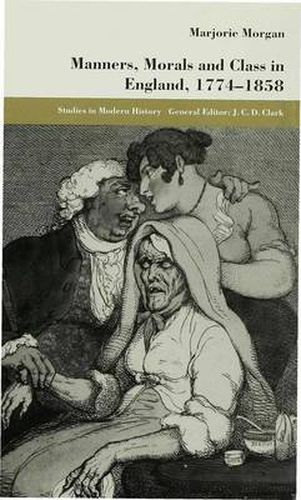Readings Newsletter
Become a Readings Member to make your shopping experience even easier.
Sign in or sign up for free!
You’re not far away from qualifying for FREE standard shipping within Australia
You’ve qualified for FREE standard shipping within Australia
The cart is loading…






This title is printed to order. This book may have been self-published. If so, we cannot guarantee the quality of the content. In the main most books will have gone through the editing process however some may not. We therefore suggest that you be aware of this before ordering this book. If in doubt check either the author or publisher’s details as we are unable to accept any returns unless they are faulty. Please contact us if you have any questions.
This book analyses English social and occupational behavioural ideals from the courtesy book’s demise in 1774 to the Medical Act’s passage in 1858. Ideals from conduct and etiquette books mix gracefully with those displayed by professional groups, particularly medical practitioners, in an analysis that challenges conventional thinking about class and social change in early-industrial England. Dr Morgan’s study will be essential reading for British historians, as well as for all those interested in how individuals establish personal identity and infuse confidence into human relations in an impersonal, urban society.
$9.00 standard shipping within Australia
FREE standard shipping within Australia for orders over $100.00
Express & International shipping calculated at checkout
This title is printed to order. This book may have been self-published. If so, we cannot guarantee the quality of the content. In the main most books will have gone through the editing process however some may not. We therefore suggest that you be aware of this before ordering this book. If in doubt check either the author or publisher’s details as we are unable to accept any returns unless they are faulty. Please contact us if you have any questions.
This book analyses English social and occupational behavioural ideals from the courtesy book’s demise in 1774 to the Medical Act’s passage in 1858. Ideals from conduct and etiquette books mix gracefully with those displayed by professional groups, particularly medical practitioners, in an analysis that challenges conventional thinking about class and social change in early-industrial England. Dr Morgan’s study will be essential reading for British historians, as well as for all those interested in how individuals establish personal identity and infuse confidence into human relations in an impersonal, urban society.